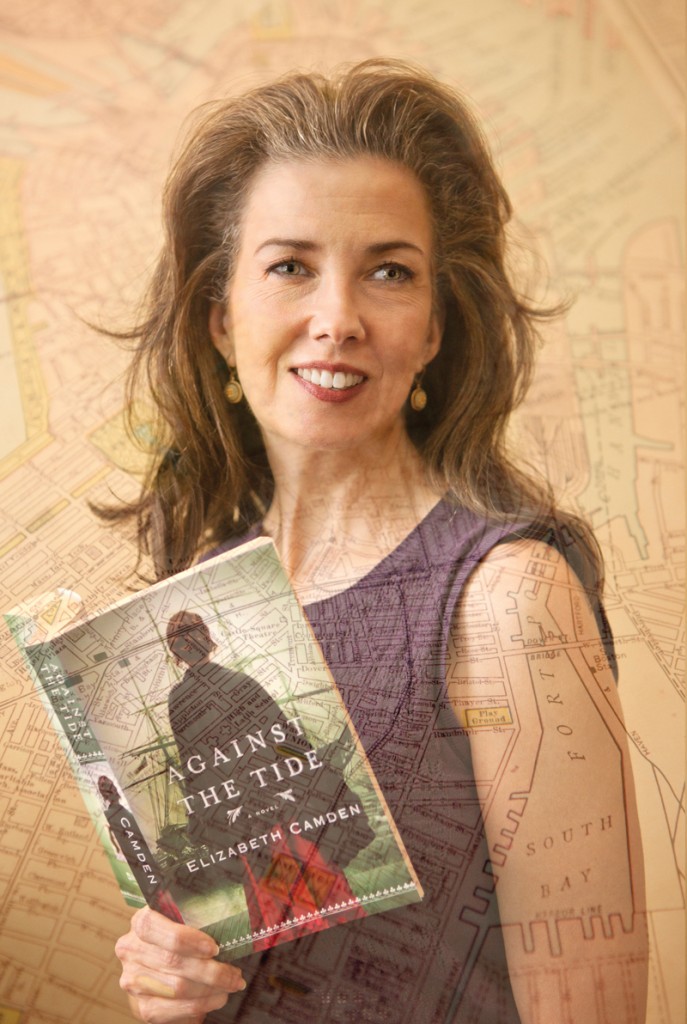
By day she’s a research librarian, helping college students plow their way through the science of DNA, the mysteries of macroeconomics and the thoughts of Greek philosophers.
But what she does at night, she does alone, by candlelight.
“Something about lighting a candle is a comfort,” says Dorothy Mays. “That, and a pot of decaf coffee.”
Mays has been burning the midnight oil for more than a decade, dividing her time between her day job at Rollins College’s Olin Library and her solitary nighttime vocation: writing romance novels. There’s a lot more synergy between the two vocations than you might think.
In fairness, it took Mays a while to figure that out, too.
I assumed I had a vaguely racy she leads a double life story on my hands when I heard that Rollins had a librarian on its staff writing what people used to call bodice-rippers — pulpy potboilers that always had a heavy-breathing scene on the cover and lots of purple prose within.
It didn’t take long for Mays to disabuse me of that notion when I tracked her down at her Olin office. She was dressed in black slacks, a white blouse and sensible shoes — a look I thought of as studious and crisply professional, and one she described as “hopelessly plain.”
“I’d rather sit in a dentist’s chair than go shopping,” she explained. Then she slipped right into a chipper reference-desk groove and proceeded to straighten me out.
“We’re still living down those Fabio covers of the seventies,” she said, noting that publishers once assumed that covers of genre fiction novels had to scream like carny barkers to sell: blazing six-guns and thundering hooves on westerns; googley-eyed aliens on sci-fi; luxuriant chest hair and heaving bosoms on romance.
These days, said Mays, covers are less lurid, readers more perceptive, prose not nearly as breathless. The genre has shifted, and her own path to success is proof, though it didn’t happen right away. First came the struggling-writer story. The one you’ve heard before.
There’s the hopeful beginning: “I thought: ‘Who wouldn’t want me?’” The dashed hope under a tsunami of rejection letters: “Actually, it turned out that hundreds of people didn’t want me.” And finally, the smack-your-forehead, find your bliss, breakthrough moment: “I thought: ‘I’m a librarian. I love research.’”
And that’s been her hook, the key to her success. Writing under the pen name Elizabeth Camden, she began setting everything she could churn out in the late 19th and early 20th centuries. She works in a home office where the walls are covered with vintage city maps. (“You don’t want your characters walking across a bridge if that bridge hasn’t been built yet.”)
She extensively researches the time period and the setting of her books while creating plotlines that revolve around historical events: the Chicago fire of 1871, the quest to cure tuberculosis, the rise of the opium trade.
In 2013, one of her novels, Against The Tide, won a RITA award for Most Inspirational Romance Novel. (The much-coveted RITAs are presented by the Romance Writers of America.)
Mays — or Camden — has had eight romance novels published over the past few years. And on any given evening she’s working on three books at a time, each one in a different stage of completion.
All of her stories revolve around a female protagonist who’s drawn into a challenging profession. Not surprisingly, most of her readers are women. But not all.
Her husband, Bill Mays, a tough-as-nails former Air Force officer who taught physics at Evans High School as a retirement job, is a loyal follower. He used to prominently display her works in his classroom.
“The students would always ask him what a guy like him was doing with all these flowery books,” Mays said. “He’d say, ‘Oh, she’s my favorite novelist.’ Then, at the end of the year, he’d tell them: ‘She’s also my wife.’”
Now, that’s romantic.
• • •
And speaking of romance: There’s no matching the passion of opera, whether it’s what happens on stage or the fervor of its fans.
Local loyalists have regrouped under a new name: Opera Orlando. Formerly known as Florida Opera Theatre, the new organization will stage its first major production April 22-23 at the Dr. Phillips Center for the Performing Arts.
Mozart’s The Impresario and Francis Poulenc’s Les Mamelles de Tirèsias are the latest offerings from a grassroots organization that sprang up after the demise in 2009 of Orlando Opera (not to be confused with the newly minted Opera Orlando). Visit operaorlando.org for more information.
Michael McLeod is a contributing writer for Winter Park Magazine and an adjunct instructor in the English department at Rollins College.

